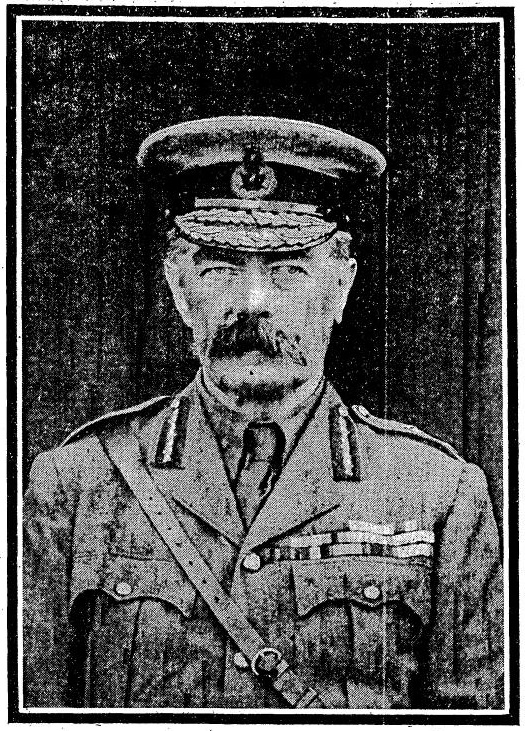On 5 June 1916, Lord Kitchener, Secretary of State for War, while on a mission to Russia, went down with the HMS Hampshire when it hit a mine. In so doing he became the highest ranking British soldier killed by enemy action.
His greatest achievement was in recognising that the war would be a long one and that Britain would have to raise, train and equip a large army. His estimate was that it would take at least three years for the British army to be effective which – if you take Vimy Ridge in April 1917 as Britain’s first unequivocal victory – was more or less correct.
His greatest failing was – assuming such a thing was ever possible – in not expanding Britain’s munitions industry fast enough which led to the Shell Scandal of 1915 and the creation of the Ministry of Munitions.
While it would take Britain three years to create an effective army the war still had to be fought. For two years France and Russia bore the brunt of the fighting and naturally wanted Britain, ready or not, to shoulder more of the burden. As Kitchener himself said: “We make war as we must not as we would like to.” This was never more true than in the battle that would start in less than a month’s time.
It is often said that he was extremely reluctant to tell the politicians anything and that by the time of his death his influence was on the wane. This is so often said that I begin to doubt it.

The Times 7 June 1916 p14. Click for the full obituary. Although The Times had started printing photographs before the war they were a rarity and became more so as the war went on. The fact that Kitchener gets a photo at all let alone such a big one says something about the esteem in which he was held. Notice the squint removed from the famous recruiting poster.




That eye is creeping me out 😮
I wonder how many people confuse Kitchener with Haig, or realise that he perished in such a grim way on active service?
Was his role in the War Cabinet (rather than his office) filled by Jan Smuts, who many today would probably think was a Dutch equivalent of Sid James?
Vimy Ridge was essentially a Canadian victory.
Another big mistake was to raise “Kitchener’s Army” as a completely separate organisation, ignoring the fact that there was a complete and appropriate setup already in existence, the Territorials. It would possibly have solved a lot of command and training problems had the skeleton of the Territorials been used.
It would also have helped if the army had heeded Haig’s advice in August 1914 to leave at least 10% of the experienced NCO’s and Officers behind to train the reinforcements. However, obsessed with a short war and determined to get into combat that advice was ignored, much to the cost of the reinforcements. The old, professional, army was effectively dead by the end of 1914.
Thanks for enclosing the fascinating article from the Times.
Andy Ammo almost gets it right; it was an Allied victory as can be seen on the memorials there. The area had been fought over bitterly throughout as it dominated the Northern plain but the Canadians certainly achieved the final taking and holding of the ridge.
In terms of using the Territorials, I think the authorities were caught completely unawares by the surge in volunteering for the army in 1914 and didn’t think about using the Territorials to absorb the flow, given that the Terriers were linked to existing army units and bound by established recruiting and recall patterns, which the events of summer 1914 completely overwhelmed. Of course, in the end the volunteers for Kitchener’s Army did end up in established units, mostly, but by a different path.